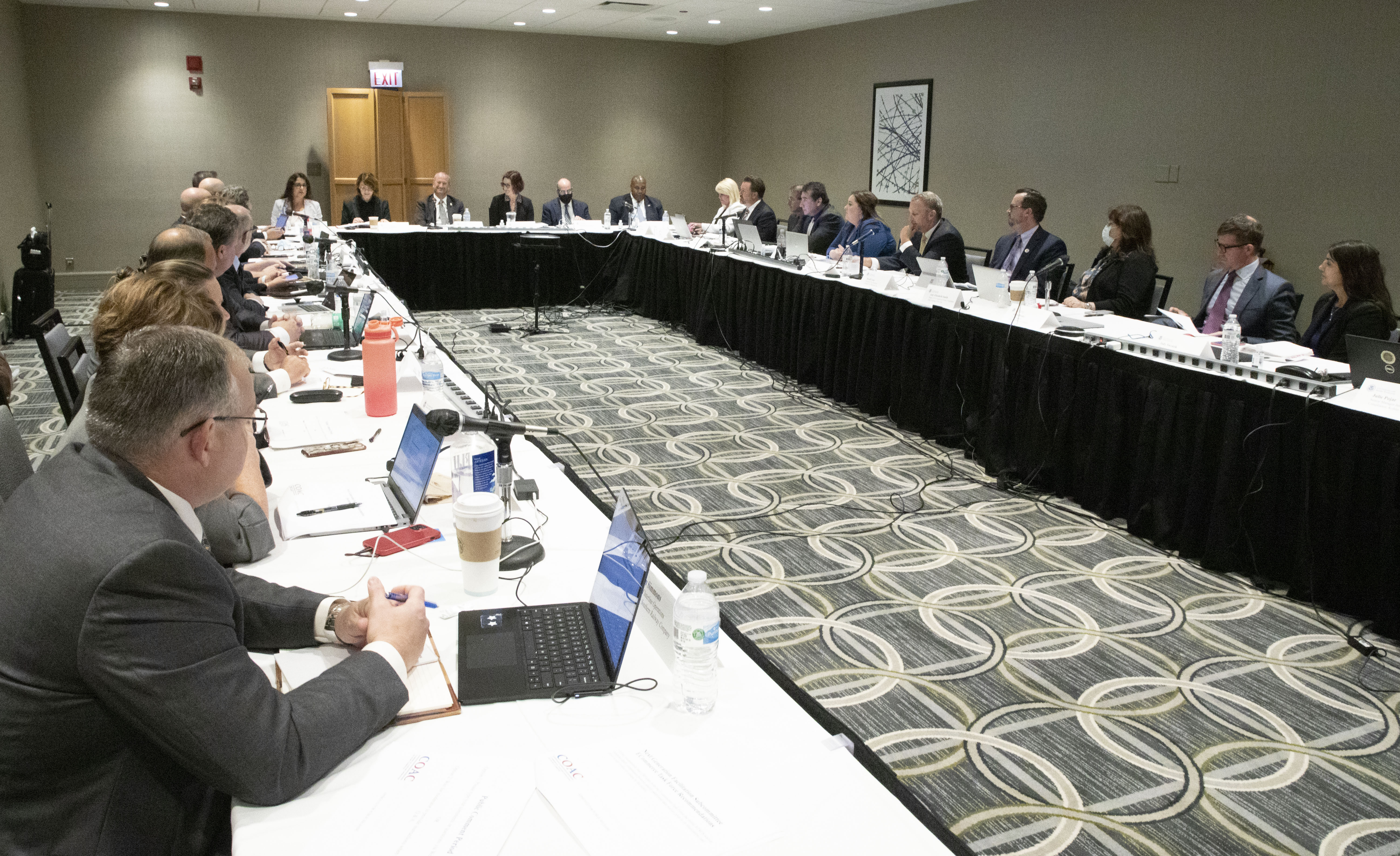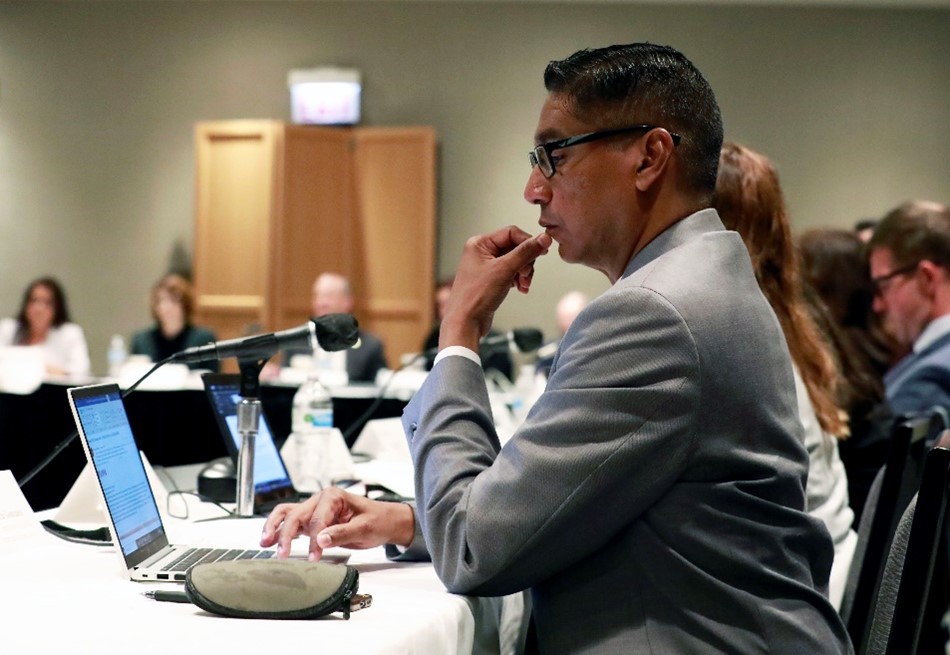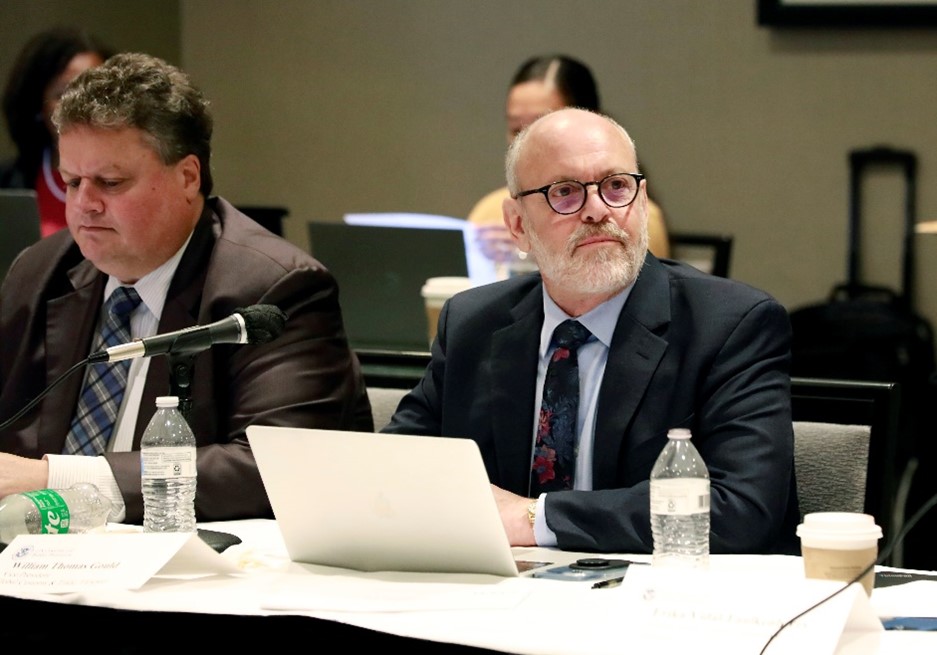The momentum continued when members of the 16th term Commercial Customs Operations Advisory Committee, known as COAC, gathered in Chicago on Sept. 14, for their third public meeting of the fiscal year. It was the first time U.S. Customs and Border Protection’s trade advisory committee held its quarterly meeting with in-person public participation since the beginning of the pandemic.

“Thank you all for participating. These meetings are vitally important for public transparency, which is fundamental to our operations,” said CBP’s Deputy Commissioner Troy A. Miller, who co-chaired the proceedings. “We are glad to have so many people in this room with us, and we are grateful to be joined by others online.” Miller explained that CBP’s commissioner was unable to attend the meeting. “Commissioner Magnus is on travel in Mexico for the high-level economic dialogue this week. He sends his regards and wishes he could be here as well.”
In his opening remarks, Miller shared a number of trade updates, including the continued progress of the 21st Century Customs Framework, a CBP initiative that addresses current and future trade challenges and modernization barriers. “Throughout the process of putting together the framework, we’ve placed a strong emphasis on stakeholder input across the customs environment,” he said. “Our close engagement and dialogue with industry resulted in the COAC formally expressing their support of nearly half of the 21st Century Customs Framework legislative package at the June quarterly COAC meeting.”

Miller added that since that time, members of the 21st Century Customs Framework Task Force have continued to review updates CBP made to address industry feedback and have identified areas for further refinement. “The 21st Century Customs Framework Task Force has expressed support for 17 provisions to date, which is the majority of the legislative package,” said Miller.
Between now and the next COAC meeting in December, CBP and members of the task force will be discussing updates to the remainder of the legislative package, including trade facilitation. “We understand the importance of trade facilitation to you and the health of the U.S. economy, and we look forward to focusing on your proposals over the next quarter,” said Miller. “We also realize the important role that our partner government agencies play, and we will continue engaging with them on these key issues.”
Miller also spoke about industry’s vital role in preventing goods made with forced labor from entering U.S. commerce. “Supply chains have grown increasingly complex in an ever-evolving global marketplace. It is critical that those seeking to import goods understand their supply chains and work to prevent importation of goods produced with forced labor,” he said.
Miller cited an example to illustrate the effectiveness of CBP’s enforcement actions. “Last week, CBP modified a withhold release order against the Indian company, Natchi Apparel Limited, allowing the company to resume importation into the U.S. This modification took place just one month after CBP issued the original withhold release order at the end of July,” said Miller. Upon review of new evidence and extensive collaboration with partner organizations, CBP concluded Natchi addressed all six of the indicators of forced labor identified by the original withhold release order. “That is the exact outcome we hope for when we issue withhold release orders and findings,” said Miller.

“We understand that industry still has questions about forced labor implementation, and we also understand the scale of this challenge for both compliance and enforcement,” Miller told the audience. “We are listening to your feedback. We look forward to continued dialogue with the COAC and appreciate the opportunity to benefit from your creativity, insight and commitment.”
Tom West, the U.S. Department of Treasury’s deputy assistant secretary for tax policy, who also co-chaired the meeting, acknowledged the importance of the COAC’s work in helping to keep up with the changing trade environment. One area he noted was the modernization of broker regulations. “We are in our final review process of the broker modernization and regulation packages and hope to have them approved and signed in the very near future,” said West. “I know that COAC has provided input into this effort and many members commented on the proposed regulations. We always appreciate, value and take into account that feedback. It was very useful in getting us to where the final rules are.”
On behalf of the COAC, trade co-chair Brian White, the senior director of customs and trade facilitation at Intel Corporation, thanked CBP for the opportunity to meet outside of Washington, D.C. “While we were here this week, we had the opportunity to meet with the local port officials where the COAC members received an overview of the passenger processing and renovation projects that are happening here at O’Hare International Airport,” said White. “We also had an opportunity to see some of the agency’s challenges at the international mail facility. I’m always impressed with the caliber of the men and women within the agency and their continued dedication. We sometimes forget. We look at the agency from a trade perspective, but CBP is one of the world’s largest law enforcement agencies that is tasked with a pretty broad mission set. As members, we saw that in action this week,” said White. “On behalf of all of the members here today, we’re grateful for the opportunity to support CBP in that mission as it relates to providing advice and guidance on the trade commercial practices.”

Later, during the meeting, White gave a brief overview of the 21st Century Customs Framework initiative from the trade community’s perspective. “I have been encouraged by the progress we’ve made with CBP over the last few months. We have been working to address trade concerns with several of the statutes, but clearly we still have a lot more work to do.” White explained that during the last year and a half the focus has been on CBP’s challenge areas. But now, the conversation needs to pivot. “We want to focus on the trade challenge areas that we intend to advance to ensure that we’re delivering some trade facilitation benefits and opportunities,” said White. “Then, we can offer CBP the opportunity to discuss the statutory level changes and seek areas where we can agree and advance them together.”
White appealed to the trade community with a call to action. “Start thinking about the statutory level facilitation opportunities that each of you would like to see advanced in the 21st Century Customs Framework. Talk to your colleagues, talk to your trade counsel if you are using outside counsel. What are some of the concepts that collectively we, as the trade, want to advance with CBP to strike a balance between enforcement and facilitation opportunities? We want to make sure that all of your ideas are represented in this COAC process and that CBP also has the ability to weigh in,” said White.
The meeting also included updates on trade programs and COAC subcommittee work. Eight recommendations were presented and unanimously passed. Three of the recommendations pertained to the 21st Century Customs Framework, two focused on the Automated Commercial Environment 2.0, two concerned export modernization and one dealt with e-commerce.
The next COAC meeting will be held on Dec. 7 in Washington, D.C.
COAC is a 20-member advisory committee that was established by Congress in 1987. The committee provides advice and recommendations to CBP and the Department of the Treasury on the commercial operations of CBP and trade-related interdepartmental functions. Some of the issues that COAC focuses on include enhanced border and supply chain security, international efforts to harmonize customs practices and procedures, import safety, compliance, and modernization and automation processes used to facilitate trade.


